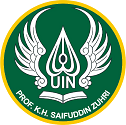Analysis of Qardhul Hassan Based on Islamic Philantrophy Funds at Bankziska Lazismu East Java
DOI:
https://doi.org/10.24090/icip.v1i1.311Keywords:
qardhul hassan, islamic philanthropy, bankziskaAbstract
The rampant of bank plecit in Indonesia as the country with the most Muslim population in the world is an irony in itself, because Islam actually has a solution for every problem, including poverty alleviation. In the Islamic economy there are good loan terms, which are a solution to the usury economic system. Sources of funds can be taken from Islamic philanthropic funds managed by zakat institutions. Of the several financial assistance institutions based on socio-religious funds in Indonesia, BankZiska is among those that survive to manage. The purpose of this study is to analyze the implementation of qardhul hassan based on Islamic philanthropy funds at BankZiska. By using descriptive quantitative methods, this study describes the implementation of qardhul hassan using indicators of increasing the collection of philanthropic funds, increasing the distribution of funds to partners, increasing the number of transactions, and increasing the number of partners who are free from loan sharks which is about 65%.








